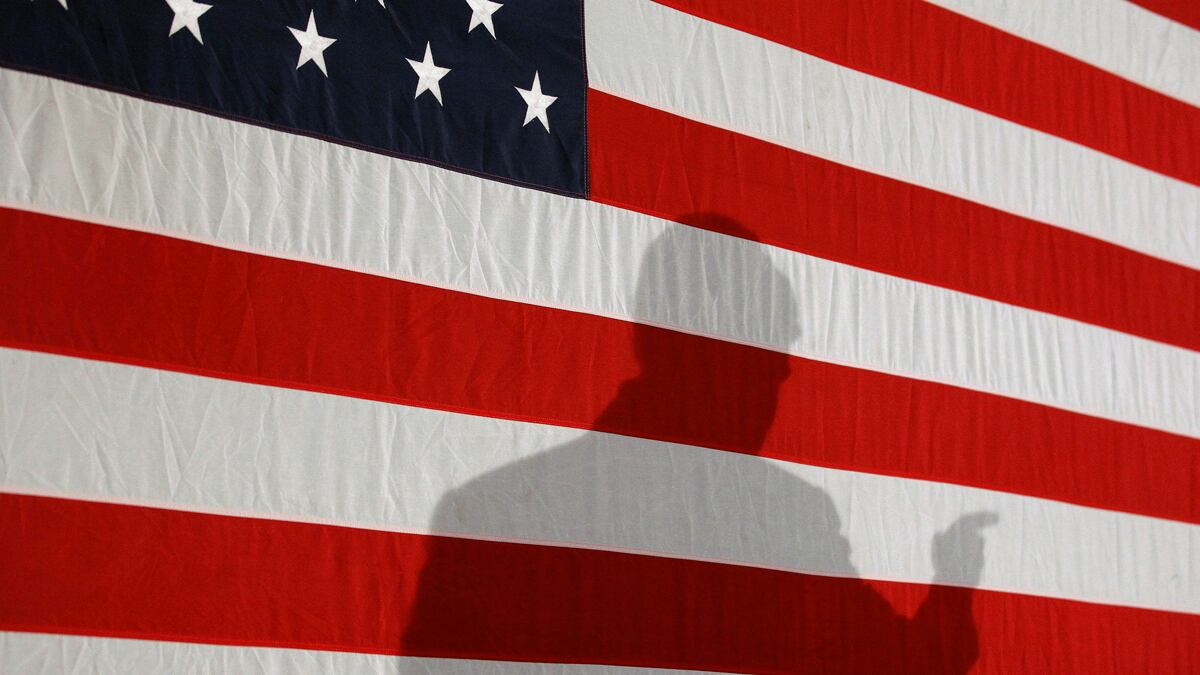When the Iowa caucus results trickle in Tuesday night, the usual rules of mathematics may be suspended.
In normal elections, the candidate who garners the most votes is the undisputed winner. But the caucuses are anything but normal.
Instead, the raw totals will be put through a Cuisinart of spin and obfuscation as the campaigns, the operatives, and the pundits try to whip up their desired electoral concoction.

All this unfolds against the backdrop of an expectations game that isn’t unlike the Wall Street casino, where beating the analysts’ consensus each quarter is more important than earnings per share.
Take Mitt Romney, surely the most maligned front-runner of modern times. The former governor spent the year fostering the notion that he wasn’t really playing in Iowa, where he got trounced in 2008, but had to abandon that charade when Newt Gingrich started coming on strong. That’s why Romney spent New Year’s weekend racing through the cornfields.
If Romney prevails at the caucuses, he is the undisputed winner, gets a slingshot into New Hampshire, the quasi-home state where he’s already favored, and could all but wrap this thing up within a week.
But if Romney finishes second, he could still be declared the winner—that is, if Ron Paul finishes first. The logic is that nobody outside the congressman’s inner circle sees him as a serious threat to win the Republican nomination. So a Paul victory will be immediately discounted by the press as a fluke—but good news for Romney because it prevents a more viable rival such as Gingrich from getting an Iowa bounce. Paul, meanwhile, loses by winning. Got that?
Rick Santorum was virtually ignored by the media until he blipped up to 15 or 16 percent in three polls last week and triggered the promiscuous use of the S-word, surge. Suddenly he was everywhere, including the Today show. If Santorum finishes third, he will be crowned a winner simply because he had been so far back in the pack.
For Newt, the situation is reversed. Six weeks ago, the media would have treated word that he might place third in the caucuses as a stunning comeback, given that the former speaker was widely written off after his campaign imploded last summer. Then Gingrich rocketed into first place in the polls and expectations soared; he might actually win Iowa! Romney would be mortally wounded! Uh, not so fast. That was before a super PAC with close ties to Romney unleashed a barrage of nearly $3 million in anti-Newt attack ads, which amounted to nearly half of all political commercials aired in the Hawkeye State.
Suddenly, Gingrich was saying he’d be happy to finish in the top four, and his campaign manager said fifth place would be just fine—not a particularly effective attempt to move the goalposts. If Gingrich does somehow make it to the top three, he can do a victory dance.
(Think this stuff doesn’t matter? Bill Clinton effectively won the 1992 New Hampshire primary by declaring himself the “Comeback Kid,” even though he finished second, because he clawed his way back from womanizing and draft-dodging allegations. But the trick got old. When Joe Lieberman in 2004 exulted over being in “a three-way split decision for third place,” despite being mired in single digits in New Hampshire, everyone scoffed.)
Finishing out of the “top tier,” as defined by the media-politico complex, would be bad news for Michele Bachmann and Rick Perry, both of whom briefly led the Iowa polls. Every time they turn around, reporters will be asking whether they plan to drop out. In such an environment, fundraising tends to dry up, a vicious cycle that forces most candidates to the sidelines.
To underscore the absurdity of the process further, 119,000 Republicans turned out four years ago, so these distinctions about who grabbed a ticket out of Iowa and who didn’t often turn on one candidate pulling a thousand votes more than the next one. And these aren’t just ordinary voters, but people willing to sit through a community meeting at 7 p.m. on a cold January night. What’s more, no delegates are awarded on caucus night, which simply starts a long and complicated process.
Why, then, does Iowa—a state far whiter and more rural than most of America—get to play such an outsize role? Well, it performs more of a winnowing function in GOP contests, where the evangelical vote can be as high as 40 percent. Mike Huckabee went nowhere after winning the caucuses in 2008, while John McCain, who finished fourth, wound up as the nominee. Iowa is in some ways a funhouse mirror, distorting the process as everyone else suspends disbelief and plays along.
State officials, such as Gov. Terry Branstad, tell me Iowa deserves its kickoff spot because the well-informed citizenry peppers the candidates with tough questions. But even they had to admit there was far less of that this year, when the candidates spent much of their time in TV studios and at network-sponsored debates rather than pressing the flesh in Des Moines and Cedar Rapids.
If Santorum finishes strongly—and he’s largely escaped media scrutiny because his rise began in the final week—it will partially vindicate the old-fashioned shoe-leather approach. He conducted more than 300 events in the state. Now he’s talking about making a stand in New Hampshire, knowing full well the way the press scores these things. “We just have to exceed expectations, which right now are pretty low,” Santorum told Politico.
But that in turn depends on whether Santorum’s Iowa vote is deemed better than expected, worse than expected, or somewhere in the muddled middle. Within a day or two the press will be obsessing about New Hampshire, and except for those left behind as roadkill, Iowa may well prove not to have mattered very much.






